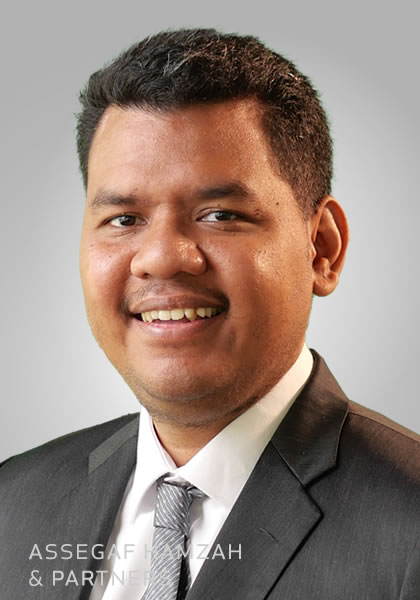With Law No. 17 of 2023, Indonesia’s Healthcare Sector is Finally Getting the Attention that it Deserves

The second semester of 2023 continued to be an active year in the Indonesian legal landscape. After revamping the financial landscape, the Indonesian government moved on to tackle issues in the nation’s healthcare sector by issuing the so-called “Omnibus Health Law” (Law No. 17 of 2023 on Health) in August 2023.
The urgency for the transformation of Indonesia's healthcare system was underscored by the impact of the COVID-19 pandemic, which unveiled the vulnerabilities and inadequacies of the healthcare systems globally, including in Indonesia. With healthcare often being overlooked in favour of other, more pressing reforms, the pandemic highlighted the weakness in Indonesia’s healthcare system, for example, the lack of public health facilities, shortage of health workforce, and overlapping of laws and regulations.
The Omnibus Health Law replaces 11 laws (together, “Previous Laws”), namely:
| No. | Previous Laws |
| 1. | Law No. 419 of 1949 on Prescription Medication Ordinance |
| 2. | Law No. 4 of 1984 on Infectious Diseases Outbreak |
| 3. | Law No. 29 of 2004 on Medical Practice |
| 4. | Law No. 36 of 2009 on Health |
| 5. | Law No. 44 of 2009 on Hospital |
| 6. | Law No. 20 of 2013 on Medical Education |
| 7. | Law No. 18 of 2014 on Mental Health |
| 8. | Law No. 36 of 2014 on Healthcare Personnel |
| 9. | Law No. 38 of 2014 on Nursing |
| 10. | Law No. 6 of 2018 on Health Quarantine |
| 11. | Law No. 4 of 2019 on Midwifery |
At its core, the Omnibus Health Law seems designed to realise public entitlement to healthcare. The Ministry of Health has initiated six pillars to realise this goal, namely:
-
primary services;
-
referral services;
-
health resilience systems;
-
health financing systems;
-
human resources in the healthcare sector; and
-
healthcare technology.
As discussed in more detail below, these six pillars affect businesses differently. Moreover, some provisions in the Omnibus Health Law represent a major departure from the previous legal framework in the healthcare sector. Consequently, businesses in the healthcare sector must pay careful attention to the new requirements under the Omnibus Health Law. Based on their impact, this client update will specifically discuss new elements for pillars 1, 3 and 5.
Pillar 1 on Primary Services: Hospitals can conduct other Business Activities in the Health Sector
Previously, hospitals were required to maintain a single operational focus, in that they could only carry out business activities as a hospital. As a result, we saw limited diversification and restrained potential for comprehensive healthcare delivery. The Omnibus Health Law has expanded the permissible business activities significantly by allowing hospitals to engage in other activities as long as such activities are in the health sector, for example, running a clinic, pharmacy, or a laboratory.
While the Previous Laws differentiated the definition of "health services" depending on its form (i.e., promotive, preventive, curative, rehabilitative and traditional health services), the Omnibus Health Law broadened the definition of “health services” to now encompass any forms of activities and/or a series of service activities provided for individuals or communities to maintain and improve the level of public health in the form of promotive, preventive, curative, rehabilitative and/or palliative care. Consequently, a hospital can now operate a primary clinic (klinik pratama) if the hospital company is in the form of a cooperative (koperasi) or a micro, small, and medium scale enterprise (usaha mikro, kecil, dan menengah or "MSMEs"), as well as laboratory by cooperating with a cooperative or an MSME as required under Presidential Regulation No. 10 of 2021 on Investment Business Fields, as subsequently amended by Presidential Regulation No. 49 of 2021.
Pillar 5 on Human Resources in the Healthcare Sector: Foreign Medical and Healthcare Personnel who Graduated Overseas can Practice in Indonesia
Under the Omnibus Health Law, qualified foreign medical personnel (tenaga medis) and healthcare personnel (tenaga kesehatan) who graduated overseas (“Foreign Personnel”) can now practice in Indonesia. Nonetheless, strict regulations remain for these foreigners, and they must meet specific requirements and procedures before they can practice locally.
The term “medical personnel” covers only doctors and dentists. On the other hand, the term “healthcare personnel” covers a broader range of individuals, namely those qualified in clinical psychology, nursing, midwifery, pharmaceutical, public health, environmental health, nutrition, physical therapy, medical technology, biomedical engineering, traditional health, and other health personnel as determined by the Minister of Health.
Broadly, a Foreign Personnel can practice in Indonesia if they:
-
Has obtained a qualification from abroad; and
-
Has satisfied the below classification:
-
For medical personnel, they are classified as a specialist or a sub-specialist; or
-
For a healthcare personnel, they possess a specific level of competence,
both as evidenced by the successful completion of a competency evaluation by the Minister of Health.
-
With respect to the above evaluation, the Minister of Health must involve the Minister of Education (being the authority responsible for educational matters), any council in the healthcare sector (namely any independent institution whose aim is to improve the quality of practice and professional technical competence of medical personnel and healthcare personnel), and one or more collegium (namely independent experts from the relevant health discipline who oversee the council and is a member of the council).
The competency evaluation will encompass an evaluation of the administrative completeness and an evaluation of the individual’s practical ability, which includes a competency equalisation and competency examination. Upon successful completion of the competency examination, the Foreign Personnel will be declared competent and must apply for a Registration Certificate (Surat Tanda Registrasi or “STR”) and Practice Licence (Surat Izin Praktik or “SIP”). The Foreign Personnel will also be required to complete an adaptation program at a health service facility, which they can only do after obtaining the STR and SIP.
After completing the adaptation program, the Foreign Personnel can be employed in Indonesia for a maximum of two years. When the two-year initial period is completed, the employer can extend the employment once for another two years. Foreign Personnel working in a special economic zone (kawasan ekonomi khusus) will be excluded from the provisions on the duration and extension.
If the foreigner fails the competency examination, they will not be able to practice in Indonesia and must return to their country of origin.
Pillar 5 on Human Resources in the Healthcare Sector: Changes to Licensing Scheme
STR. Under the Omnibus Health Law, an STR will be valid indefinitely. Previously, a medical or healthcare personnel had to renew their STR every five years.
It is imperative to underscore that expired STRs will not be automatically converted into a perpetual STR. Those with expired STRs would need to reapply for a new STR.
SIP. With respect to SIP, the Omnibus Health Law mandates all medical and healthcare personnel to designate a practice location, in addition to possessing a valid STR. They are no longer required to obtain a recommendation from professional organisations.
Additionally, it should be observed that under the Omnibus Health Law, the issuance of SIPs is no longer confined to a maximum of three practice locations as mandated by the Previous Laws.
Foreign medical and healthcare personnel. As mentioned earlier, the STR and SIP of Foreign Personnel will only be valid for two years, plus a one-time extension of two years.
Pillar 5 on Human Resources in the Healthcare Sector: Liability of Medical and Healthcare Personnel
On the liability of medical and healthcare personnel, the Omnibus Health Law made the following changes.
Criminal liability. The Omnibus Health Law establishes a framework to ensure due process and oversight in determining medical and healthcare personnel’s criminal liability. Where there are indications of potential unlawful conduct in health services, the relevant medical or health personnel must first seek the preliminary recommendation of an assembly (majelis), which will be formed by the Minister of Health, responsible for professional discipline matters. The assembly will give its recommendation after receiving a written request from the investigators (penyidik) at the Indonesian National Police.
The essence of this recommendation hinges upon a determination by the assembly on whether the medical or healthcare personnel has carried out their practice in alignment with the relevant professional standards, service standards, and standard operating procedures. The Omnibus Health Law mandates that the assembly gives its recommendation within 14 business days from receipt of the foregoing written request. However, it should be highlighted that if the assembly fails to deliver a recommendation within 14 business days, the assembly would be deemed to endorse the initiation of the criminal investigation by the Indonesian National Police.
Notwithstanding the above, the Omnibus Health Law retains the protection afforded to medical and health personnel. This protection encompasses legal protection for the personnel as long as they have fulfilled their duties in accordance with the applicable professional standards, professional service standards, standard operating procedures, and professional ethics, as well as by considering the patient’s health needs.
Mistakes by medical and healthcare personnel. While medical and healthcare personnel benefit from some protection as detailed above, the Omnibus Health Law regulates that if a medical or healthcare personnel is suspected of making a mistake in carrying out their duties and such mistake harms or causes damages to the patient and triggers a dispute between the personnel and the patient, then such dispute must first be resolved through an alternative dispute resolution outside the court.
As of now, the Omnibus Health Law has not elaborated on what constitutes a “mistake”, leaving room for interpretation.
Pillar 3 on Health Resilience Systems: Championing the Domestic Industry
Besides affecting the individuals working in the healthcare sector, the Omnibus Health Law also introduced changes to provisions governing raw materials for medicine. Indeed, the Omnibus Health Law has a clear focus on stimulating the domestic industry by introducing a tailored array of incentives aimed at nurturing and fortifying domestic enterprises operating in the healthcare sector if they use domestic raw materials.
In highlighting the importance of domestically sourcing raw materials for medicine, the Omnibus Health Law has positioned itself to be the basis for gaining efficiency in costs, which in turn is a critical factor in advancing the nation’s healthcare sector.
Other Key Points
Future pandemic. The Omnibus Health Law also contains provisions governing the response mechanisms for future health crises. These provisions have likely been included in light of the challenges faced by Indonesia during the COVID-19 pandemic.
Generally, these provisions cover pre-disaster preparedness, countermeasures, and monitoring and vigilance activities in an area.
Implementing regulations remain in force. All implementing regulations of the Previous Laws remain in force insofar as they do not conflict with the Omnibus Health Law. In addition, other pertinent regulations continue to apply, including Presidential Regulation No. 10 of 2021 on Investment Business Fields, as subsequently amended by Presidential Regulation No. 49 of 2021. Having said that, the provisions mandating that the business activities of (i) primary clinics (klinik pratama) under KBLI code 86103 are allocated/reserved for cooperatives and (ii) clinical health laboratories under KBLI code 86903 necessitate collaborative partnerships with cooperatives and MSMEs, must continue in full force and effect.
Furthermore, implementing regulations for the Omnibus Health Law must be enacted within one year from 8 August 2023.
Conclusion
The Omnibus Health Law introduces a range of crucial reforms. These reforms include providing avenues for foreign medical and healthcare personnel to contribute to the Indonesian healthcare landscape, streamlining the licensing procedures and making it more efficient.
Meanwhile, in the often-contentious field of medical malpractice and negligence, the Omnibus Health Law attempts to strike a balance between protecting medical and healthcare professionals versus patients’ rights by establishing a structured framework that provides guidance for criminal liability and mistakes. Through a meticulous process of recommendations and assessments, the law ensures accountability while preserving the personnel’s rights.
All in all, the Omnibus Health Law is a forward-looking legislative endeavour. It positions Indonesia for a more comprehensive, responsive, and cost-effective healthcare ecosystem and holds the potential to significantly shape the nation's healthcare towards a positive transformation.
Salma Indah Putri & Nanda Julia Azzahra also contributed to this alert.




